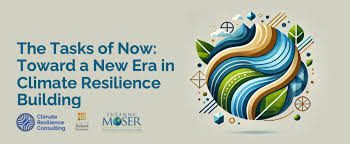from Carbon Brief…I am particularly worried about tipping points that involve the biosphere and humans due to breaching thresholds for heat or drought that then ripple into food availability, livelihood and ecosystems.
Global drought hotspots report catalogs severe suffering, economic damage
by United Nations press release…Food, water, energy crises, human tragedies in 2023-2025 detailed in sweeping analysis by U.S. National Drought Mitigation Center
and the UN Convention to Combat Desertification
Droughts worldwide pushing tens of millions towards starvation, says report
by Fiona Harvey in The Guardian…Water shortages hitting crops, energy and health as crisis gathers pace amid climate breakdown
Thinking long-term about infrastructure
by School of International Futures…75 years is a long enough period of time for the world to change in ways that are unanticipated. For this reason, scenarios that take a longer term view should have within them elements that are genuinely discomfiting.
Global wheat yields would be ‘10%’ higher without climate change
by Orla Dwyer in Carbon Brief…Climate science has “done a remarkable job of anticipating global impacts on the main grains and we should continue to rely on this science to guide policy decisions”, Lobell, the lead study author, says in a press release.
He adds that there may be “blind spots” on specialised crops, such as coffee, cocoa, oranges and olives, which “don’t have as much modelling” as key commodity crops, noting:
“All these have been seeing supply challenges and price increases. These matter less for food security, but may be more eye-catching for consumers who might not otherwise care about climate change.”
‘All of his guns will do nothing for him’: lefty preppers are taking a different approach to doomsday
by Aaron Gell in The Guardian…Liberals in the US make up about 15% of the prepping scene and their numbers are growing. Their fears differ from their better-known rightwing counterparts – as do their methods.
More in this category
The rise of the degrowther right
by David Broder in Jacobin…A new conservative environmentalism that blends anti-modernism with nationalism and austerity is spreading across Europe.

The tasks of now: Toward a new era in climate resilience building
by Susanne Moser, et al…As the climate crisis intensifies, so does the need for philanthropic investments that are strategic,
innovative, and sustained over the long-term. This report identifies a variety of funding opportunities
that align with key transformative strategies.
Exploring critical perspectives on climate security
from NATO Climate Change Center for Change and Security Centre of Excellence…Participants in this workshop were encouraged to re-imagine climate security research by focusing on longer timeframes, deeper cultural connections, and broader spatial scales, and in doing so learn more about the importance of considering humans, non-human entities, and biodiversity as crucial factors in addressing climate change in a nuanced and sustainable manner.
Climate models can’t explain what’s happening to Earth
by Zoë Schlanger in The Atlantic…Global warming is moving faster than the best models can keep a handle on.
This climate activist has a plan to defeat trumpism. He’s in prison.
by Aaron Gell in The New Republic…Roger Hallam is serving a five-year sentence for advocating direct action during a videoconference. It hasn’t stopped him.
Anthropocene under dark skies: The compounding effects of nuclear winter and overstepped planetary boundaries
by Florian Jehn in EGU…The analysis of global catastrophic events often occurs in isolation, simplifying their study. In reality, risks cascade and interact.
Climate models can’t explain what’s happening to Earth
by Zoë Schlanger in The Atlantic…Global warming is moving faster than the best models can keep a handle on.
Braiding indigenous and western knowledge for climate-adapted forests: An ecocultural state of science report
by Cristina Eisenberg et al…Our ecocultural state-of-knowledge report brings
together Indigenous Knowledge (IK) and Western
Science (WS) to support climate and wildfire adaptation
strategies for forest landscapes. This report builds
on federal directives to respectfully and intentionally
braid IK and WS knowledge systems in a Two-Eyed
Seeing approach that informs climate- and wildfireadaptation strategies to conserve our public forests.
Is the world becoming uninsurable?
by Charles Hugh Smith on Substack…This is not an abstraction, though many are treating it as a policy debate. As noted previously here, the insurance industry is not a charity, and insurers bear the costs that are increasing regardless of opinions and policy proposals. Insurers operate in the real world, and their decisions to pull out of entire regions, reduce coverage and increase premiums are all responses to soaring losses.
Fueling innovation to navigate the wildfire challenge ahead
by Chris Anthony, et al, in Stanford Social Innovation Review..The climate-driven wildfire crisis calls for a comprehensive, cross-sector approach to funding, research, and action.
IPBES report highlights Indigenous & local knowledge as key to ‘transformative change’
by Sonam Lama Hyolmo in Mongabay…The report identifies three underlying causes of the biodiversity crisis: the disconnection from nature, inequitable power and wealth distribution, and the prioritization of short-term gains. Karen O’Brien, co-chair of the assessment and a sociology professor at the University of Oslo, said these issues have led to destructive views and behaviors that exacerbate biodiversity loss, including the risk of irreversible tipping points that threaten ecological systems.
The AMOC Might Be WAY More Unstable Than We Thought…Here’s Why
from PBS Terra…There is a mysterious cold blob in the North Atlantic that could be a warning sign that the largest heat transfer system on the planet, the AMOC, is on the brink of collapse.

Climate change forged a new reality in 2024: ‘This is life now’
by Diana Baptista in Context…In 2024, billions of people endured heatwaves, storms and floods; 2025 is set to be worse as man-made climate change wreaks havoc.
Derailment risk: A systems analysis that identifies risks which could derail the sustainability transition
by Laurie Laybourn in Earth Systems Dynamics…How will the effects of climate change, nature loss, and other environmental change impact our ability to tackle the causes of these problems? There is already a high demand on resources to respond to worsening climate shocks, knock-on impacts for areas such as food production and health, and the many other growing consequences of changes to the Earth system.
Dancing with a permanent emergency
by Jonathan Rowson in The Joyous Struggle…In the real world, there is scope to change the opponent (whether that is fossil fuel companies, politicians, or ourselves), the goal(we can do so much better than GDP), and the rules of the game (climate litigation) and some of those transformative possibilities are where my work is now focussed.


